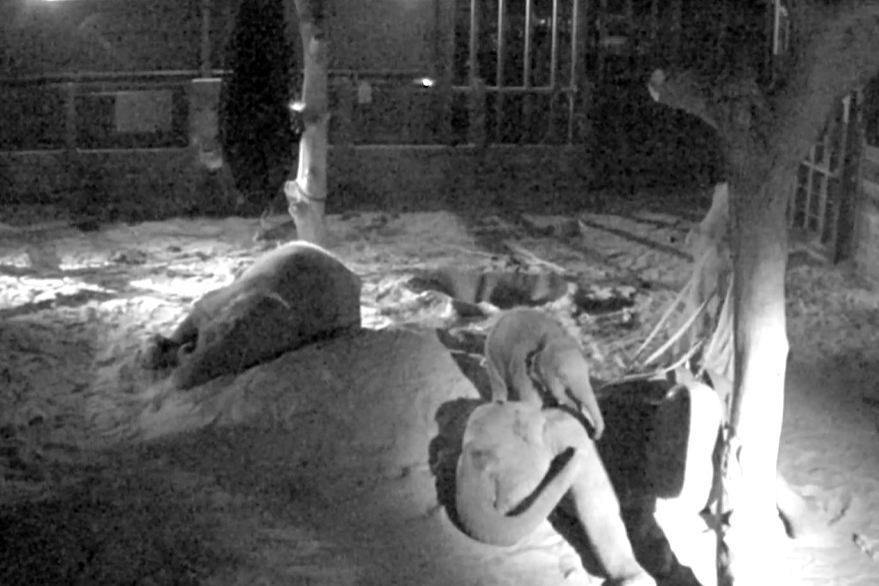Zoo’s night-vision footage of Asian elephants ‘vital to protect species in wild’
Elephant keeper Stefan Groeneveld explained the footage helps scientists working with the endangered animals in the wild.

Your support helps us to tell the story
From reproductive rights to climate change to Big Tech, The Independent is on the ground when the story is developing. Whether it's investigating the financials of Elon Musk's pro-Trump PAC or producing our latest documentary, 'The A Word', which shines a light on the American women fighting for reproductive rights, we know how important it is to parse out the facts from the messaging.
At such a critical moment in US history, we need reporters on the ground. Your donation allows us to keep sending journalists to speak to both sides of the story.
The Independent is trusted by Americans across the entire political spectrum. And unlike many other quality news outlets, we choose not to lock Americans out of our reporting and analysis with paywalls. We believe quality journalism should be available to everyone, paid for by those who can afford it.
Your support makes all the difference.A zoo in Bedfordshire which is using night-vision technology to monitor its Asian elephant herd has said the footage is vital to protecting the endangered species in the wild.
Whipsnade Zoo, near Dunstable, has released night-vision footage of the herd, showing 11-month-old Nang Phaya crawling over her aunties Lucha, 41, and Karishma, 24, appearing to entice them to play while they attempt to sleep.
Elephant keeper Stefan Groeneveld explained his team is using the cameras to monitor the multi-generational herd at night in order to provide 24-hour care and learn more about changes to the family dynamic since the birth of Nang Phaya last year.
While the footage from the conservation zoo provides an insight into the herd’s nocturnal habits, it also helps scientists from the Zoological Society of London (ZSL) who are working with Asian elephants in the wild, Mr Groeneveld said.
“Sadly, elephants are one of the most persecuted species in the world, facing daily threats in the wild from poachers, conflict with the communities they live alongside, droughts, as well as habitat loss and degradation,” Mr Groeneveld said.
The conservation research also includes dung sampling to support faecal DNA testing, sound monitoring to aid understanding of communication, motion studies and thermal imaging.
Of the night-vision footage, released ahead of World Elephant Day on Saturday, Mr Groeneveld said it shows Nang Phaya is “not ready to grow up just yet”.
“Thanks to advancements in camera technology we’re able to learn so much more about these incredible animals,” he said.
“Last year our hidden cameras captured Donna giving birth to Nang Phaya, surrounded by the rest of the females in the herd, including her own mum Kaylee – who provided reassurance and support.
“Now we’re using the cameras to learn more about the herd’s sleep patterns, social structure and interactions after the sun sets.
“From this latest footage we can see that it’s still always playtime for Nang Phaya, who is not ready to grow up just yet.”
He added that every piece of knowledge that is gained aids the team in providing the best care possible for the “tight-knit” herd.
“From watching hours of night footage over the last year we’ve learnt that 41-year-old aunty, Lucha, has become a second mum to little Phaya, who can often be found curled up next to her and 24-year-old Karishma.
“This shows us what a tight-knit herd we have at Whipsnade and how close Phaya’s relationship is with all of the females.”